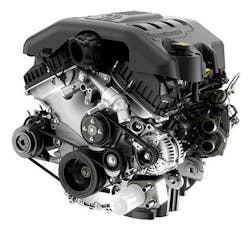Aug. 15, 2019—When helping customers make the right engine oil decision for their vehicles, does it matter what fuel delivery system they’re running?
With newer technologies like gasoline direct injection, it does. Experts say that shops should be on the lookout for vehicles with this fuel-saving feature so that techs can discuss the best-performing engine oil options.
“When a vehicle comes in, identify if this a GDI engine or not,” said Martin Birze, regional business manager for consumer vehicle engine lubricants in North and South America for Lubrizol. “GDI engines have been growing since 2013 and 2014—when the adoption rate started to increase.”
The design took off from those years, and now more than half of engines today use direct injection for fuel delivery, according to federal data.
For direct injection, fuel is sprayed directly into the combustion chamber, which maximizes fuel burn and, thus, fuel economy. It differs from port fuel injection, which delivers fuel through the air intake system to the back of the valve.
In the pursuit of fuel economy while still maintaining horsepower, manufacturers have been going with smaller engines, often adding turbochargers. This requires a high-performance oil at lower viscosity grades. These engines produce high-heat, high-pressure environments, making oil performance more important to engine longevity.
“Direct injection is more efficient, and then they would put a turbocharger on that,” Birze said. “When you do all that, you stress the oil much higher than you did in the past. So the demands that are put on GF-6 are much higher.”
GF-6 is the latest ILSAC standard for engine oil. Licensing for it will begin in May, and the standards include performance benchmarks for the stresses of GDI and turbo GDI engines.
What does this all mean for shop technicians? The added performance values found in synthetic oils present sales opportunities specific to customers with GDI engines.
Birze says that to achieve the full performance and efficiency claims in a customer’s GDI vehicle, they should look toward a synthetic oil. An ILSAC-licensed conventional oil at the manufacturer-recommended grade will provide adequate protection, but Birze said that synthetics typically go the extra mile.
“We would include more detergent, more dispersant, more antioxidant,” he said. “So in all of those areas, you’re going to have much better high-temperature protection.”
Another point to note is that if the manufacturer recommends a 0W oil, like 0W-20 or 0W-30, it will have to be synthetic. Birze said that non-synthetic base oils cannot be made into that viscosity grade.
NOLN has started a list of vehicle models that have GDI engines, which can be found here. Know a GDI engine that needs to be added to the list? Let us know at [email protected].
Image: Ford 3.5-liter EcoBoost






